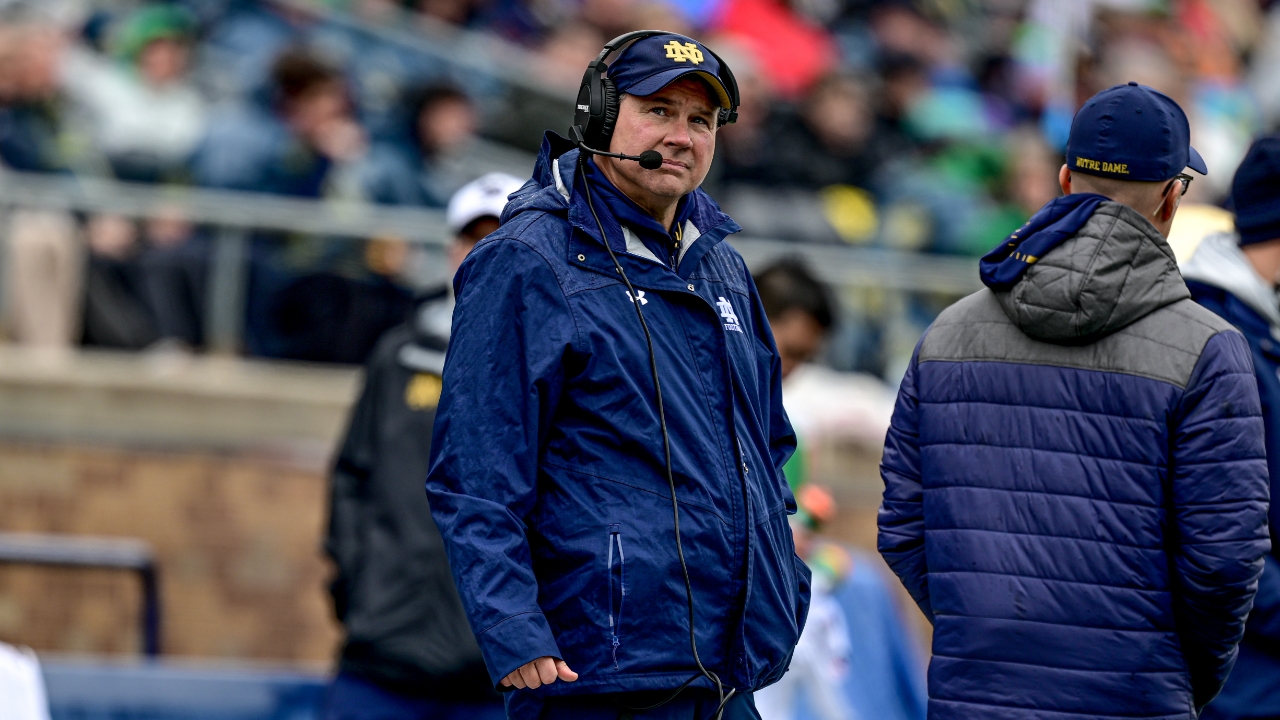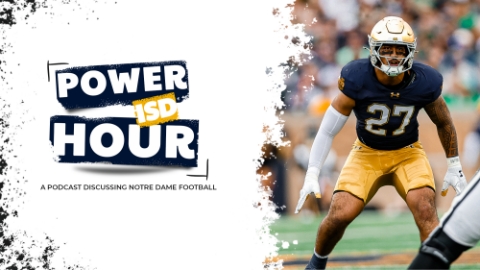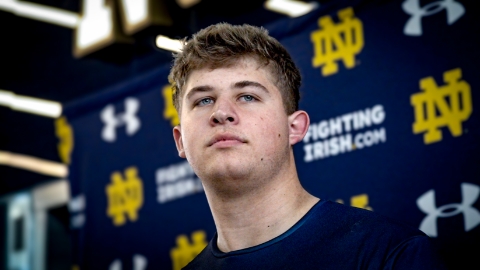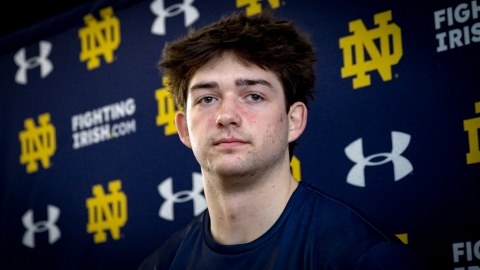Wake Forest’s Slow-Mesh will be “pain in the butt” for Notre Dame to defend

Wake Forest’s slow-mesh offense is a polarizing RPO-based system.
Like Navy’s triple-option, it’s even more difficult to defend because only a few teams run it on such a consistent basis.
“It's not the triple option, but it's similar in terms of the system that they run,” coach Marcus Freeman said. “They have answers for what you do defensively. It's a great challenge for our defense.”
Coach Dave Clawson developed and implemented the system with offensive coordinator and quarterbacks coach Warren Ruggiero.
At times, it’s produced incredible results, enabling a roster mostly comprised of three-star prospects to compete for ACC championships by scoring a whole lot of points.
The Demon Deacons went 11-3 in 2021, averaging 41.0 points (4th out of 133 FBS programs) and 467.9 yards (11th) per game.
‘Pain in the butt’
Defensive coordinator Al Golden described the challenges the slow mesh poses in simpler terms.
“It’s a pain in the butt,” Golden said. “No doubt.”
The name derives because the quarterback might leave the ball in the mesh point (the running back’s belly) for an exaggerated amount of time, waiting for the defense to commit to playing the run or the pass.
“The quarterback, without penetration, will walk the running back right up into the line of scrimmage,” Golden said. “The running back will sometimes get the ball at three, four seconds. Think about that — at three, four seconds into the play. He does a great job at pressing it and sneaking out.”
It exaggerates the length of a typical play, increasing the strain on each defender.
“It just challenges all three levels differently,” Golden said. “If you're a defensive tackle, you may have to lock out and protect your gap a little bit longer. If you're on the back end, you may have to handle a double move or just know that you're going to have to stay longer with your man.”
It’s especially tough on linebackers, who desire to react and destroy, especially in Notre Dame’s blitz-heavy defense.
“Backers are used to attacking,” Freeman said. “When you get this slow mesh, you get a run action, but you can't. They're going to read you. The minute you just attack downhill, there's open areas behind you, and so you’ve almost got to untrain your backers to be so aggressive downhill.”
Of course, this year’s version of the Demon Deacon's offense has experienced a significant dip in production due to quarterback Sam Hartman's transfer to Notre Dame.
They’re down to 331.7 yards per game (103rd out of 133 FBS programs) and a Brian Ferentz-esque 20.5 points per game (112th).
Professor Hartman
While few teams run the slow mesh, most of Notre Dame’s defenders faced it last year.
“Stanford ran it,” Golden said. “A little bit different version, but definitely there were some things that showed up.”
Sure, a reference to the 2022 game against the Cardinal might inspire anxiety in Fighting Irish fans, but even though Notre Dame lost that day, the defense still held Stanford to 16 points.
The Irish also have an opportunity to learn from Hartman, a master of the slow mesh after running it for five years.
“What I’ve seen is he takes individuals into the classroom and talks to them,” linebacker JD Bertrand said. “It’s hard to talk big picture, but he’s taken me into the classroom with whatever other linebackers want to come in. Cam Hart has been in the classroom today. He’s talking us through what he’s reading as the quarterback, what their routes are. It’s an offense that seems to try to find the answer.”
Those film sessions have given Bertrand and other defenders a better idea of what it takes to stymie the slow mesh.
“We’ve taken a lot of points in terms of learning the offense a little bit from Sam,” linebacker JD Bertrand said. “They’re going to have some wrinkles here and there. Some teams have attacked them trying to pressure, pressure, pressure, (while) other teams have attacked them by letting the run bleed, bleed, then let them hand it off and then tackle it. I think seeing all those different ways will help us attack it in our own ways.”
Of course, Hartman has his own game plan to worry about, so it’s not like he has the time to skip offensive meetings to speak to the defense.
Instead, he’s been able to point the defensive staff in the right direction.
“He's got his hands full with their defense,” Golden said. “So that's his focus right now. I don't want to make too much of it. But, obviously, he's a veteran. He's smart, and we’ll listen to a young man like that.”


